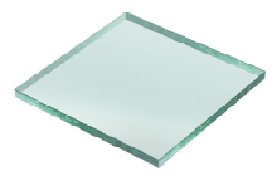
One kind of sheet glass made with the "float glass" production technique is transparent float glass. Melting premium raw ingredients, including silica sand, soda ash, and limestone, is the first step in this process. The molten glass is then deposited on top of a bed of molten metal, usually tin. Glass develops a homogeneous, parallel-surfaced sheet as it cools and hardens.
Thanks to its optical clarity, flatness, and simplicity of production, transparent float glass is a frequently used and adaptable material. It is widely used in a variety of sectors and can be tailored to fit certain requirements, which makes it a popular option for interior and architectural design, automotive, and other fields. Additionally essential to contemporary manufacturing and construction, transparent float glass promotes sustainability, energy economy, safety, and aesthetics. As companies look for creative, environmentally responsible solutions, its significance will increase.
When compared to sheet glass and conventional glass, the production costs of clear float glass are significantly lower.
As per IS standard IS 14900: 2018, all clear float glass is covered by the obligatory ISI Certification Scheme.
This standard describes the testing protocols as well as the physical, chemical, and production requirements for transparent float glass.
Indian Standards Institute, or ISI was renamed the Bureau of Indian Standards (BIS) in 1987. The official mark that the Bureau of Indian Standards provides for manufacturers of various goods is the ISI Mark. It is used to indicate compliance with Indian standards (IS) set by the Bureau of Indian Standards (BIS) and has been used as a conformity marking for industrial products. Manufacturers received permission from BIS to use the ISI Mark on items that comply with relevant Indian requirements through the product certification program.
Only manufacturers (domestic or foreign) who produce the finished product will be awarded ISI Certification. This will not be given to any product importers, traders, dealers, or distributors.
The following documentation is required to get an ISI certification:
For more detailed information, please click here.
There are two approaches for Indian manufacturers to become certified with the ISI Mark:
Regular Procedure
With the possible exception of cases deemed "All India first," which might take up to 180 days, the licensing procedure is expected to be finished in 120 days. This timeline starts on the day the application is received, assuming that at different points in time the documentation, unit assessment, and product conformance are all deemed acceptable.
Step 1: Manufacturing Unit Customization in Compliance with Applicable Indian Standards
Step 2: Submission of the Application Form
For more detailed information, please click here.
Simplified Procedure
This is a much faster process than the standard procedure. After a factory inspection is deemed satisfactory and the initial evaluation establishes that the sample complies with the applicable Indian Standard(s), the license application process is expected to be finished in 30 days.
Step 1: Adapting the Manufacturing Unit to Comply with the Relevant Indian Standard
Step 2: Sample Testing
For more detailed information, please click here
The process of obtaining ISI Mark Certification for Foreign Manufacturers typically includes the following steps:
Step 1: Application
Step 2: Query Raised (If Any)
For more detailed information, please click here.
Brand Liaison provides helpful support for achieving ISI Mark Certification. Among our offerings are:
Please click here to get in contact with our team of specialists for a deeper explanation of the paperwork and steps needed to get ISI Mark Certification.